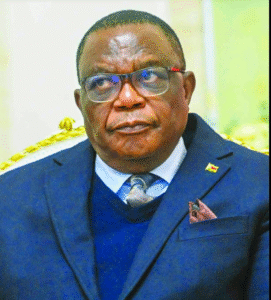MEDIA MANIPULATION AND THE CCC: STIRRING THE POT OR EXPOSING THE TRUTH?
The rise of social, political, and mainstream media has played a powerful role in shaping Zimbabwe’s political landscape. While these platforms can highlight important issues and hold power to account, they can also be misused to spread misinformation and fuel division. Recent controversies involving prominent journalist Hopewell Chin’ono and other media figures linked to ZANU PF have raised serious concerns about media ethics and political interference.
The latest issue centres on claims that the Citizens’ Coalition for Change (CCC) excluded senior politician Tendai Biti from its list of parliamentary candidates ahead of the 2023 elections. These reports, widely circulated on various platforms, have stirred speculation and debate within political circles and the public at large.
The CCC, a party built on democratic principles and popular support, is not immune to internal disagreements. Like any political movement, it faces challenges that must be addressed carefully. However, the current wave of rumours appears to be more than just an internal matter. Some observers believe there is a deliberate attempt to sow discord within the CCC by external forces, particularly through manipulated media narratives.
At the centre of this storm are journalists like Hopewell Chin’ono and other commentators seen to be sympathetic to ZANU PF. Critics argue that these individuals are actively shaping a public narrative that suggests deep division and infighting within the CCC. This narrative, whether accurate or not, risks undermining the party’s unity and distracting it from its core mission: to challenge ZANU PF’s decades-long grip on power.
The question remains—was Tendai Biti truly sidelined, or is this part of a broader political strategy to destabilise the CCC? In a country like Zimbabwe, where political tension runs high and trust in institutions is often low, even a rumour can have a lasting impact. That’s why it’s essential for the CCC leadership to respond quickly and clearly to such reports. Transparency and communication are key to maintaining internal cohesion and public confidence.
Political parties must be vigilant about managing internal matters discreetly and responsibly. Disagreements will always exist, but allowing outside influences to exploit them only weakens the movement. As for the media, journalists have a responsibility to report with fairness and integrity. In times like these, the line between reporting and political interference must not be blurred.
Zimbabwe’s media environment is already highly polarised. When reporters become part of the story—especially if they are perceived to be pushing a particular political agenda—their credibility suffers, and the public’s trust in the media declines. This is particularly dangerous in a country where the democratic space is already shrinking.
Journalism should be a tool for building awareness and accountability, not for spreading misinformation or acting as a mouthpiece for political factions. All media professionals, regardless of their political leanings, must hold themselves to the highest standards of objectivity and truth.
In conclusion, the allegations around Tendai Biti’s exclusion raise broader issues about the role of media in Zimbabwean politics. Whether these reports are based on fact or fiction, the CCC must guard against being divided from within or manipulated from outside. And the media must ask itself a vital question: Are we informing the people—or are we being used?
For Zimbabwe to move forward, both political parties and the media must act with integrity and responsibility. Only then can the country take meaningful steps toward real democracy and lasting change.



